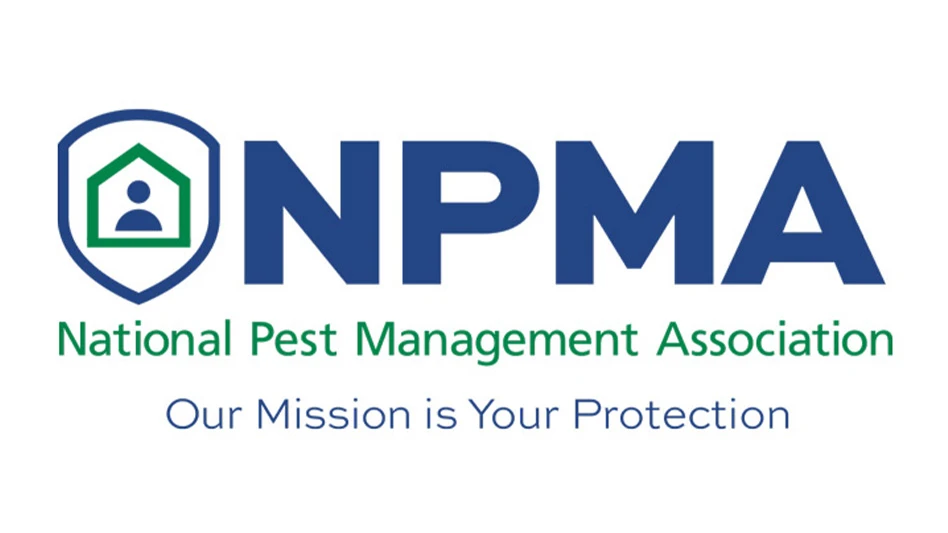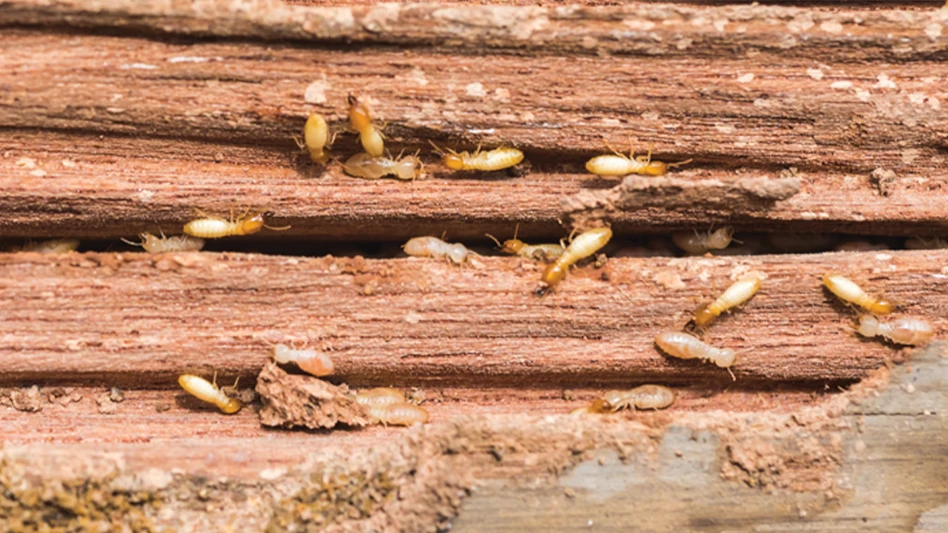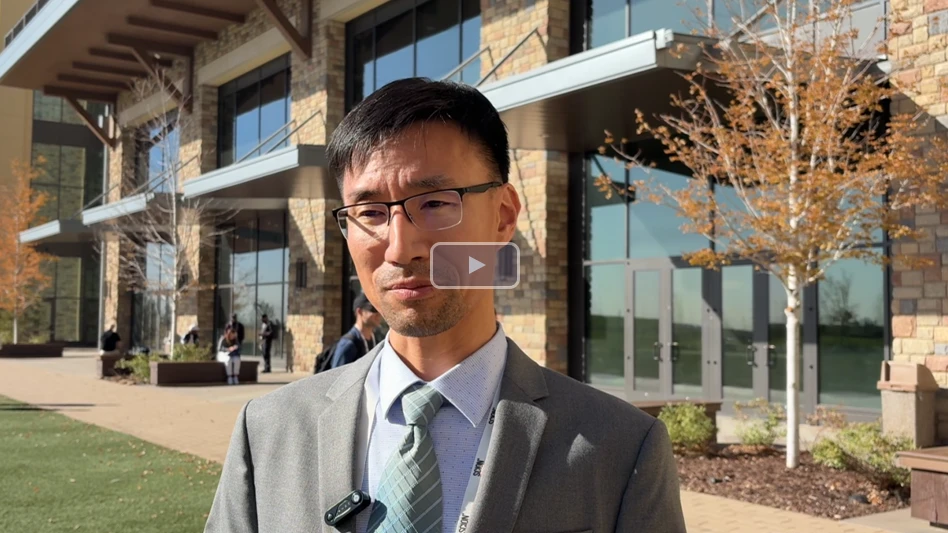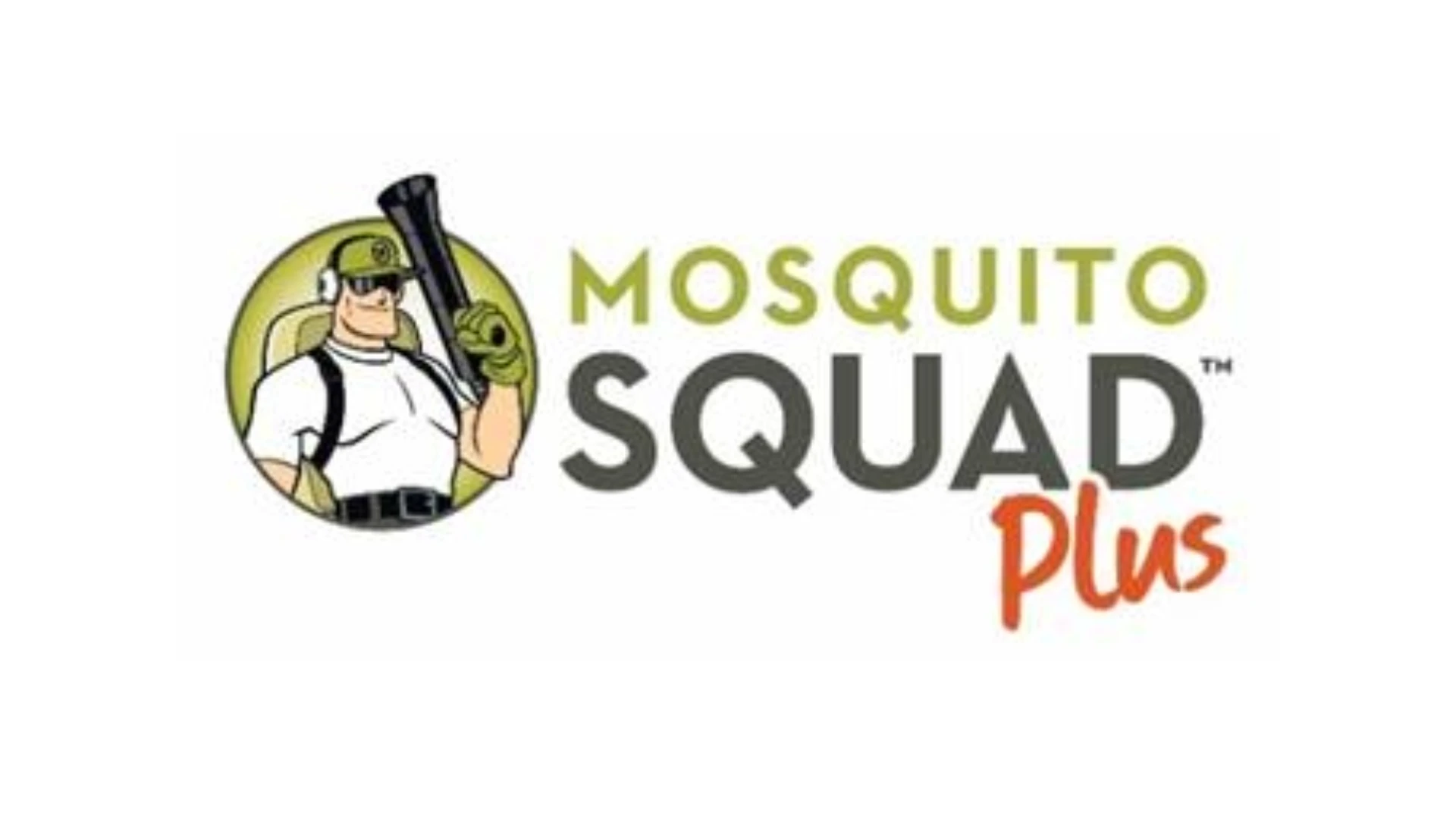SCHOOL PEST MANAGEMENT MEASURE WINS SENATE APPROVAL
WASHINGTON, D.C. — The U.S. Senate on Feb. 13 approved legislation endorsed by the National Pest Management Association (NPMA), the chemical industry, environmental organizations, and various parent and teacher groups pertaining to the management of pests in and around schools. The measure, sponsored by U.S. Senator Robert Torricelli (D-N.J.) and known as the School Environment Protection Act (SEPA), is part of the Senate-passed farm bill.
“SEPA is landmark environmental legislation that carefully addresses the need to manage pests at schools while satisfying the interests of parents and staff who are interested in being informed of upcoming pesticide treatments,” said Bob Rosenberg, NPMA director of Government Affairs. “SEPA will institute widely practiced, responsible and effective integrated pest management (IPM) programs in and around schools from coast to coast, ensuring that our nation’s children are educated in a safe, healthy and pest-free environment.”
The byproduct of weeks of negotiations between the pest management and chemical industries, environmental groups and Sen. Torricelli, SEPA was previously approved by the Senate in mid-June as an amendment to a comprehensive education reform package. A similar provision was not included in the House version of the education bill. Despite winning the votes of a majority of the Education Conference Committee during a late November vote, some House conferees objected to SEPA largely on jurisdictional grounds, and it was not included in the final version of the education bill.
During the education bill conference, some members of Congress expressed concerns that SEPA would impair efforts by state and local governments to manage encephalitis and West Nile virus. The measure the Senate passed in February is identical to the one approved in mid-June, except language clarifying that mosquito and fire ant abatement districts will not be impacted by the legislation was included.
The House approved its version of the farm bill in October, but did not include a provision similar to SEPA. Congressional leaders are expected to appoint a conference committee shortly to address the difference between the two bills and develop one final piece of legislation.
SEPA legislation stipulates that:
• Each state must develop a school pest management plan that school districts must implement, based on the principles of integrated pest management (IPM), a strategy for managing pests in a manner that minimizes pesticide exposure.
• School districts must employ or hire one certified applicator or other qualified person to implement the school pest management plan.
• Application of pesticides to any occupied area or room in a school is prohibited.
• Schools are required to post signs alerting students and staff of pesticide applications.
• Schools are required to notify parents of the existence of the school’s pest management plan.
• Schools are required to inform parents of their right to be notified prior to the application of certain types of pesticides.
• Parents expressing an interest in being notified prior to individual treatments will be notified at least 24 hours prior to applications.
SEPA is modeled after workable state school pest management laws or rules, particularly those in California, Connecticut, Illinois, Louisiana, Maryland, Michigan, New Mexico, New York, Texas and West Virginia. SEPA is also similar to a provision contained in the recently enacted education bill requiring schools to notify parents prior to students answering questionnaires aimed at collecting marketing information and surveys covering certain issues such as political affiliation and religion.
PCT UNVEILS PEST IDENTIFICATION SERIES, VOLUME II: THE FLIES
CLEVELAND, OHIO — The PCT Media Group, a leader in pest management industry communications, introduces the second in its highly acclaimed series of interactive pest identification training aids.
PCT’s Pest Identification Series, Volume II: The Flies features cutting-edge CD-ROM technology, high-resolution photography and 3-D imaging to educate pest management professionals in the finer points of fly identification and control — one of the most rapidly expanding markets in the pest control industry.
PCT’s Pest Identification Series, Volume II: The Flies, sponsored by Bayer Corporation Garden & Professional Care, is a state-of-the-art training tool featuring technical content by industry training expert Stoy Hedges and original, full-color photography by PCO Tom Myers of 18 commonly encountered fly species.
Advanced 3-D technology enables users to rotate and zoom in on images, ensuring faster and more accurate pest identification.
Other program features include a fully searchable glossary of technical terms, printable homeowner fact sheets, an interactive taxonomic key, and a fly identification testing component.
Flies featured include: fruit flies, phorid flies, moth flies, sphaerocerid flies, fungus gnats, cheese skippers, house flies, blow flies, bottle flies, soldier flies, flesh flies, cluster flies, face flies, stable flies, horse flies, deer flies, crane flies and mosquitoes.
Cost is $59.95. To order the CD, or any other PCT products, call Lori Skala at 800/456-0707 or visit www.pctonline.com/store.
J.C. EHRLICH SELLS ITS LAWN AND TREE CARE SERVICES DIVISION
READING, PA. — J.C. Ehrlich Co. has sold its lawn and tree care services division to Scotts LawnService, Marysville, Ohio. The sale officially closed on Jan. 23.
“We decided to completely focus our efforts on pest and termite control services, a business Ehrlich has been in since 1928,” said Victor Hammel, president of J.C. Ehrlich.
Hammel said Scotts was chosen because of its outstanding reputation as one of America’s lawn experts.
“The Scotts name has been synonymous with beautiful lawns for over 125 years. And, most importantly to us as a company, Scotts was interested in retaining our coworkers,” Hammel said. “Seventy-five percent of Ehrlich’s lawn and tree care employees have either joined the Scotts organization or are staying with Ehrlich. This is great for our coworkers and will provide continuity for our customers.”
After three years of keeping in touch with the J.C. Ehrlich Co. to exchange business updates, Mark Long, Scotts LawnService’s vice president of business development, said Scotts LawnService was intrigued by the company’s reputation for quality service in its pest control business, and was confident in its discovery that the same was true for the lawn care business.
“I saw that their retention of customers was high and that their revenue per customer was very high, so we confirmed this quality reputation through due diligence,” he said. “It’s obvious that over three generations, Victor Hammel and the Ehrlich family have put together a top-notch quality business.”
J.C. Ehrlich’s lawn and tree care division represented less than 15 percent of its overall business. The sale — which did not include Ehrlich’s tree surgery, vegetation management and grounds maintenance services — added $7 million to Scotts LawnService’s $42 million revenue, according to Long. J.C. Ehrlich kept its vegetation management services but is selling its tree surgery/grounds maintenance services to other local tree surgery companies.
TEXAS ASSOCIATION, NPMA FORM JOINT MEMBERSHIP PARTNERSHIP
DUNN LORING, VA. — The National Pest Management Association (NPMA) and the Texas Pest Control Association (TPCA) recently partnered to allow TPCA member companies automatic membership in NPMA, as part of NPMA’s joint state membership program.
“NPMA is very excited to welcome the TPCA on board as a new joint member partner,” says NPMA executive vice president, Rob Lederer. “Through the focused leadership in both organizations we were able to form a common bond between TPCA and NPMA. The NPMA staff is ready to begin working with TPCA and our new members in Texas to offer our existing services and find new ways to benefit the membership as a whole.”
With this development, NPMA will acquire about 500 new member companies. The total number of NPMA member companies will be roughly 7,000.
Through the joint state program, when a company becomes a member of a participating state association, the company also automatically becomes a member of NPMA and begins receiving NPMA benefits. In a joint member state, the program requires an individual company to first become a member of their state association before becoming an NPMA member.
GEORGIA PEST CONTROL ASSOCIATION OPPOSES PRETREAT LEGISLATION
ATLANTA, GA. — The Georgia Pest Control Association is working to defeat House Bill 1182, proposed legislation requiring any pest control company that pretreats houses to be bonded.
The bill was submitted by Georgia Department of Agriculture Commissioner Tommy Irvin and introduced to the Georgia House of Representatives on Feb. 8 by Robert Ray, representative to the Georgia House of Representatives, District 128. The legislation calls for the establishment of a pretreatment category, acquisition of a bond and raising violations to a felony. It was submitted by Irvin to protect homeowners from improper termite pretreatments.
“I am proposing this legislation to protect homeowners against companies that do not properly treat homes for termites during the pretreatment process,” Irvin said in a press release. “Just this past year alone, we discovered that thousands of houses were inadequately treated and unprotected.”
The most controversial aspect of the bill is the bonding provision. The Department said that the bonds could be used to cover costs of providing adequate treatment in cases where it is proven that the company failed to do so. GPCA agrees that more needs to be done to protect consumers, but it strongly disagrees with the performance bond requirement. GPCA Executive Director Valera Jessee said the way the bill is written it would be nearly impossible for a PCO to attain a performance bond. Even if a PCO could attain a bond, it would be extremely expensive because bond pricing would be based on the annual receipts of the pest control company and to qualify the company must be basically liquid financially, GPCA stated in a position paper on HB 1182.
“The difference between a bond and having insurance is that with a bond (a PCO) has to put up cash collateral rather than paying a premium on insurance,” Jessee said. “Most pest control companies don’t have $250,000 to put up for a bond.”
GPCA said the real issue is the Department of Agriculture’s inability to enforce the 46 pages of regulations it has for the pest control industry. “The Department of Agriculture has authority to go out and check, but not enough inspectors to do it,” Jessee said. “We support the Department of Agriculture getting better wages for their inspectors and more inspectors so they can do a better enforcement job.”
Currently, the state of Georgia has 1,036 pest control companies and 23 inspectors, or one inspector for every 45 companies.
INDUSTRY MOURNS LOSS OF JOE CHESHIRE
ATLANTA — Joe Cheshire, the southeast territory district sales manager for LiphaTech, died on Feb. 10. He was 48.
Cheshire lost his battle with malignant melanoma, a disease he was first diagnosed with in 2000. Cheshire had been associated with LiphaTech for the last eight years. His contributions to the pest control industry also included developing the Bugvac.
Cheshire received a B.S. in Biology and M.S. in Entomology from the University of Georgia, and a Ph.D. in Entomology from the University of Missouri-Columbia. He was an assistant professor in the Department of Entomology, University of Georgia.
Cheshire and wife Susan were together for 29 years and the couple has two children, son Mayson, 15, and daughter Katie, 12.
INTERNATIONAL EXTERMINATOR’S JIM MCDANIEL PASSES AWAY
ELK GROVE VILLAGE, ILL. — James J. McDaniel, president of International Exterminator Co., passed away Sept. 5, 2001 following a year-long battle with cancer. He was 80.
McDaniel started working at International Exterminator, along with his father, Homer Charles McDaniel, in 1942. He was a regional vice president of the National Pest Management Association (NPMA) and served as NPMA president in 1959. Both he and his brother, Wayne McDaniel, attended the Purdue Pest Control Conference for more than 50 years.
WHITMIRE MICRO-GEN LAUNCHES PT-U
ST. LOUIS — Whitmire Micro-Gen recently launched Prescription Treatment® University (PT-U) – an award-winning, online training program that offers technical education to pest management professionals. PT-U (www.pt-u.com) is easy to use and designed to empower pest management professionals with the latest industry knowledge, the company says.
PT-U’s web-based format fosters a flexible and interactive learning environment where users can participate at their convenience and learn at their own pace. PT-U also offers formal and informal learning opportunities. In addition to its courses, PT-U has a chat room, online access to industry professionals, as well as many other interactive learning features.
“We understand that people learn in a variety of ways,” says Brian Mann, sales development manager at Whitmire Micro-Gen. “In addition to offering academic courses, PT-U encourages peer interaction and provides fun and appealing learning activities to its students.”
As part of its curriculum, PT-U offers a guest lecture series, featuring industry professionals, delivered in a streaming video format. In addition, users can access PT-U’s online resources, which include a library and research center, as well as a technical help feature called “Ask Dr. Bug.”
A variety of PT-U enrollment packages are available from Whitmire Micro-Gen. PT-U offers a Single Student Package, a Corporate Package for small to mid-size companies and a Corporate Elite Package for large companies. The Corporate Elite Package allows companies to create their own customized courses and exams in addition to running reports on user activities.
SPC RELEASES ANALYSIS OF THE U.S. TERMITE CONTROL MARKET
MENDHAM, N.J. — Specialty Products Consultants, LLC (SPC) recently completed a market research study of the termite control market in the United States. Previously, SPC completed a “benchmark” market research study of the $5.2 billion U.S. urban structural pest control industry in May 2001.
Following is a sample of some of the information contained in the report.
The number of post-construction termite treatments was up 7.1 percent in 2001 and the average service charge increased 4.3 percent over the previous year. This post-construction increase was driven by record existing home sales of 5.251 million units, along with high levels of home mortgage refinancing. The number of pre-construction treatments declined 5.6 percent despite record new home sales of 900,000 units. While new home sales were up more than 35 percent in the West, all other regions saw a decline, particularly in the Midwest.
Use of liquid termiticides only as the primary methods of termite control increased 8.5 percent in 2001. The pest control companies surveyed reported usage of termite baits, alone or in combination with other treatment methods, declined 11.1 percent from 2000.
In total, five manufacturers (Aventis Environmental Science, Bayer, Dow AgroSciences, FMC and Syngenta) recorded well more than 90 percent of the sales of termite control products in 2001.
Sales of Dow’s Sentricon® (hexaflu-muron) Colony Elimination System appear to have reached their peak in 2001 after several years of extraordinary growth. FMC is the second leading supplier of termite control products with the synthetic pyrethroid products Prevail® (cypermethrin), Talstar® (bifenthrin), Dragnet® (permethrin) and the termite bait Firstline® (sulfluramid).
Aventis experienced phenomenal growth with Termidor® (fipronil) in its second full year on the market. Bayer was able to hold share with Premise® (imidi-cloprid) by picking up sales lost by Dow’s Dursban® (chlorpyrifos) and a few other products. Syngenta recorded a good increase in sales of Demon® TC (cypermethrin), which increased almost by one-third. Coupled with sales of Prelude,® Syngenta is the fifth largest supplier of termite control products in the United States.
In December 2001, BASF received its long-awaited EPA registration for Phantom® (chlorfenapyr) for post-construction termite control. Additionally, BASF recently introduced its termite bait containing hydramethylnon called Subterfuge® bait.
DOW AGROSCIENCES INTRODUCES NOVIFLUMURON
IINDIANAPOLIS — Dow AgroSciences LLC and university researchers presented the first publicly available information about noviflumuron, a new chitin synthesis inhibitor, at the Entomological Society of America (ESA) annual meeting in December 2001.
Discovered and developed by Dow AgroSciences, manufacturer of the Sentri-con® Termite Colony Elimination System, noviflumuron is effective against subterranean termites as well as a number of other insect pests. Noviflumuron provides rapid elimination of termite colonies, has favorable environmental characteristics and has been granted Reduced Risk status by the United States Environmental Protection Agency. Dow AgroSciences anticipates registration for noviflumuron in 2003.
NEW CENTRAL HOTLINE FOR POISON CONTROL CENTERS ESTABLISHED
WASHINGTON, D.C. — A new central hotline for all U.S. poison control centers has been established. The number is 800/222-1222.
The United States’ 65 centers had more than 130 individual and separate telephone numbers and the new number is part of a $21.2 million federal effort to update poison control centers across the country.
Centers field calls about 2.2 million suspected poisonings per year, mostly involving young children. About 75 percent of all poisonings can be safely handled at home with the help of a poison center aide, though 700 to 800 calls to centers per year end in fatalities, according to poison control center officials.
BAYER MAKES DEBUT ON NYSE
NEW YORK — Bayer AG in January listed its shares on the New York Stock Exchange under the ticker symbol “BAY.” At 9:30 a.m., in honor of the occasion, Bayer CEO Dr. Manfred Schneider rang the bell that traditionally signals the start of the trading day on Wall Street. Shortly afterwards, he placed the first order for Bayer shares from the trading floor.
First to congratulate Schneider — who was accompanied by CFO and CEO-designate Werner Wenning and board spokesman for North America Dr. Attila Molnar — was NYSE Chairman and CEO Dick Grasso. “Bayer is the 12th company in the German stock index DAX to take the historic step of obtaining a listing on the New York Stock Exchange,” Grasso said.
Bayer AG shares are traded in the U.S. in the form of American Depositary Receipts (ADRs), with one ADR representing one Bayer share. ADRs are the usual way for U.S. investors to acquire shares in non-U.S. companies. The Bank of New York acts as depositary bank. No new shares have been issued in conjunction with the New York listing.
COMPANY CHANGES NAME TO REFLECT COMMITMENT TO ENVIRONMENT
EVANSTON, ILL. — Smithereen Pest Management Services is the new name for the pest control company originally known as Smith-ereen Exterminating Co., according to David Harris-John, corporate operations director.
The company, which was created in Chicago more than 100 years ago by the Jennings family, maintains five branch offices in metropolitan Chicago and also operates an office in Kansas City, Mo. The other Chicago area branches are located in Mundelein, Northlake, Evanston and Midlothian.
“The name change was prompted by our company’s and our industry’s commitment to a safer environment and Integrated Pest Management (IPM),” said Harris-John.
TRULY NOLEN’S VIRTUAL HOUSE OFFERS FACTS ON FIGHTING PESTS
HALLANDALE, FLA. — Learn more about structural pests by visiting Pestilence Place, featured at Truly Nolen’s Web site, www.trulynolen.com.
Pestilence Place is the world’s first infested virtual house, the company reports. Truly Nolen takes visitors on a tour behind the walls, appliances and doors in an average house to show the types of pests that may be lurking. The virtual tour highlights the outside of the house, as well as the pest-attractive kitchen, bathroom and bedrooms inside the house.
With a few mouse clicks, visitors can view up-close photos of various ants, roaches, rats, termites and chinch bugs that could be present, along with information on what attracts these unwanted guests.
The newly updated site also offers visitors a chance to sign up for free home inspections and service estimates, plus fun and games for kids featuring the company’s well-known Mouse Car.
Also included on the site are recipes for a nifty “bug brunch.”

Explore the March 2002 Issue
Check out more from this issue and find your next story to read.
Latest from Pest Control Technology
- Pete Schopen on Centering AI, Technology as 89th Purdue Pest Management Theme
- East Tennessee Pest Control Association Hosts 2025 Smoky Mountain Conference
- Bronx Zoo Welcomes Back 'Name a Roach' Valentine's Tradition
- Working with Contractors to Keep Construction Sites Pest-free
- Nominate an Industry Professional for a 2025 Crown Leadership Award
- Webinar: ActiveGuard Will Positively Impact Your Bottom Line
- MGK Announces EPA Registration of Botanical Active Ingredient Veratrine
- Termite Control Sales Strategies





